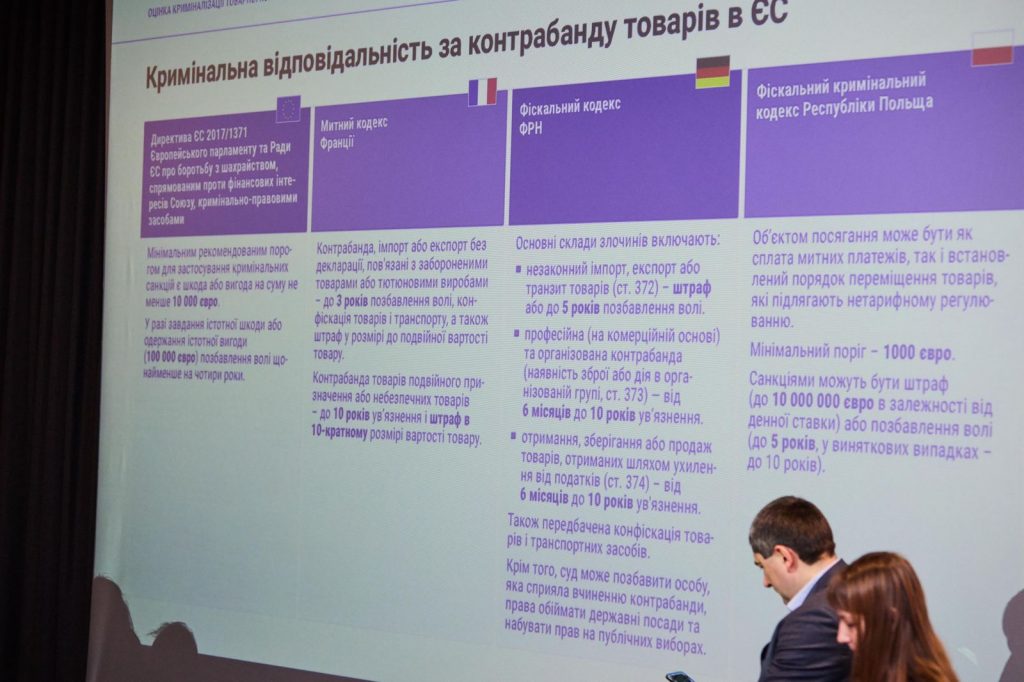Representatives of the government and business met to discuss the results of a study assessing the share of shadow trade in Ukraine.
Speakers from the government included Danylo Hetmantsev, Chairman of the Verkhovna Rada Committee on Finance, Taxation and Customs Policy; Yevhen Sokur, Acting Deputy Head of the State Tax Service; Ivan Pysarchuk, Deputy Head of the Strategic Investigations Department of the National Police of Ukraine; representatives of the BES and the State Customs Service.

During the event, Andriy Savarets, a legal expert at CASE Ukraine, presented the results of a preliminary report on assessing the criminalization of customs clearance in Ukraine from the perspective of EU legislation.
In particular, A. Savarets noted that criminal liability for smuggling excisable goods was introduced on January 1, 2024, and on July 1, 2024 – for smuggling other types of goods. Here are the findings of CASE Ukraine’s researchers based on the results of the monitoring:
- Currently, 47 cases of commodity smuggling are under investigation.
- No cases of smuggling of goods by an organized group have been recorded.
- Only one person has been detained as a preventive measure.
- 7 criminal proceedings were referred to court with an indictment.
- According to the BES, 50% of the value of all goods (smuggled items) and 93% of excisable goods were tobacco products (the remaining 7% of excisable goods were cars).
So far, only two verdicts have been passed on the smuggling of excisable goods:
– Volodymyr-Volyn City Court of Volyn region on the smuggling of cars under the guise of humanitarian aid;
– Hlybotskyi District Court of Chernivtsi Region on smuggling of tobacco products
as a result of the trial of criminal proceedings on smuggling (Articles 201, 201-1, 201-3, 201-4 of the Criminal Code of Ukraine) in 2024 (first instance), no convicted person received a fundamental term of imprisonment
in 2011 (which preceded the decriminalization of commodity smuggling), only 10% of those convicted were sentenced to actual imprisonment (first instance)
Thus, there was no explosive criminal prosecution of smugglers.
At the same time, there is a continuing trend to impose lesser criminal penalties than imprisonment.
At the same time, the law criminalizing commodity smuggling has been in effect for less than a year, so there is not much data to analyze.
Our project will continue to monitor criminal proceedings and court decisions to assess the effectiveness of the law criminalizing commodity smuggling.
Download the presentation from the speech.
The project “Assessment of the Criminalization of Smuggling in Ukraine from the Perspective of EU Legislation” is being implemented by the Center for Social and Economic Research CASE Ukraine as part of the USAID/ENGAGE activity, which is funded by the United States Agency for International Development (USAID) and implemented by Pact in Ukraine. The contents of this project are the sole responsibility of Pact and its partners and do not necessarily reflect the views of USAID or the United States Government.